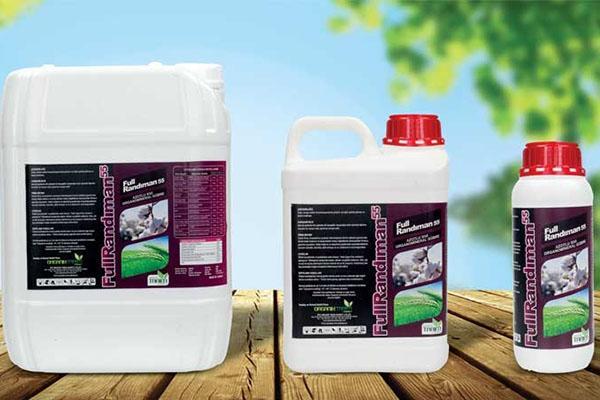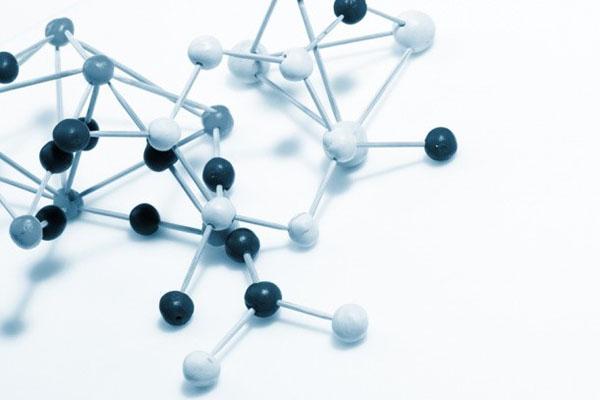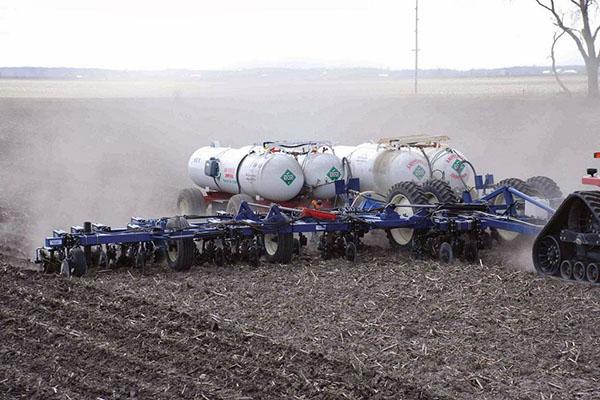Liquid nitrogen fertilizers for a good harvest at their summer cottage
 Liquid nitrogen fertilizers are classified as a separate group among organic and mineral fertilizers. The group is diverse in its composition, properties and degree of effectiveness for individual cultures. The correct choice and competent use of nitrogen fertilizers are impossible without complete information about their properties and effects on the plant.
Liquid nitrogen fertilizers are classified as a separate group among organic and mineral fertilizers. The group is diverse in its composition, properties and degree of effectiveness for individual cultures. The correct choice and competent use of nitrogen fertilizers are impossible without complete information about their properties and effects on the plant.
Varieties of liquid nitrogen fertilizers

The main element that gets into the soil when this group of fertilizers is applied is nitrogen:
- increasing the general indicator of soil fertility, phytosanitary condition of the site;
- changing the physical and chemical composition of the soil;
- improving the structure and carrying capacity of the soil.
The introduction of nitrogen fertilizers allows you to meet the plant's need for nitrogen, which is especially important when it comes to soils with a depleted mineral composition.
Nitrogen is the most important macronutrient that is a building material for all proteins, amino acids, vitamins and hormones. Fluctuations in its content in the soil have a depressing effect on the vital activity of the plant, therefore it is so important to timely and correctly apply nutrient mixtures to the site.
All the variety of liquid nitrogen fertilizers that are available for purchase can be divided into four large groups, depending on the form of the main active ingredient:
- Ammonia.
- Anhydrous ammonia.
- Ammonia water.
- Urea-ammonia mixture, or UAN.
Ammonia
 Ammonia is obtained by combining aqueous ammonia and nitrogen fertilizers (urea, ammonium nitrate, calcium nitrate), as a result of which nitrogen in the resulting mixture is in both amide and nitrate forms. The effectiveness of such nutrient mixtures is very high, in no way inferior to solid organic nitrogen fertilizers.
Ammonia is obtained by combining aqueous ammonia and nitrogen fertilizers (urea, ammonium nitrate, calcium nitrate), as a result of which nitrogen in the resulting mixture is in both amide and nitrate forms. The effectiveness of such nutrient mixtures is very high, in no way inferior to solid organic nitrogen fertilizers.
Ammonia is very concentrated, the nitrogen content can be up to 50%. Therefore, when applying, you should take special care to protect the skin and mucous membranes, wearing closed clothing, gloves and a respirator.
Anhydrous ammonia
Anhydrous ammonia is a clear, colorless liquid obtained by liquefying ammonia under high pressure. The nitrogen concentration reaches 82.5%. It is very dangerous to work with the compound, the dosage must be strictly observed. Mainly used on an industrial scale.
Storage of anhydrous ammonia is possible only in iron, steel or cast iron containers, which should be tightly closed!
Ammonia water
 Ammonia water is most often used in private gardening, since the concentration of nitrogen (it can be of two types: nitrogen 16%, nitrogen 20%) makes it less dangerous for humans and plants. The effectiveness of ammonia water is equal to crystalline nitrogen fertilizers.
Ammonia water is most often used in private gardening, since the concentration of nitrogen (it can be of two types: nitrogen 16%, nitrogen 20%) makes it less dangerous for humans and plants. The effectiveness of ammonia water is equal to crystalline nitrogen fertilizers.
CAS
 UAN is a very effective fertilizer containing nitrogen in three forms: amide, ammonium and nitrate. It is used in industrial plant growing, because the lower content of volatile ammonia allows it to be stored and transported without losing the main active ingredient.
UAN is a very effective fertilizer containing nitrogen in three forms: amide, ammonium and nitrate. It is used in industrial plant growing, because the lower content of volatile ammonia allows it to be stored and transported without losing the main active ingredient.
How and when to apply nitrogen fertilizers
 Liquid nitrogen fertilizers should be applied in spring and summer. If the timing of the application of nitrogen fertilizers is postponed to the pre-winter or early spring period, there is a possibility of a large loss of nitrogen due to washing out by melted snow.
Liquid nitrogen fertilizers should be applied in spring and summer. If the timing of the application of nitrogen fertilizers is postponed to the pre-winter or early spring period, there is a possibility of a large loss of nitrogen due to washing out by melted snow.
The exception is ammonium nitrate, the ideal time to use which is late autumn, when the soil is not frozen yet, but it does not heat up anymore, and the moisture is excellent for assimilating nitrogen.
When applying nitrogen fertilizers to soil with an acidic reaction, it is necessary to simultaneously use lime or dolomite flour.
The best time to apply nitrogen fertilizers is two weeks after the snow has completely melted, especially on chernozem soils.
Nuances of fertilization technology
 If the site is in an arid zone, fertilizing with liquid nitrogen fertilizers should be regular and uniform. This will avoid delays in the growth of the culture. Before applying nitrogen fertilizers, the soil should be shed and loosened. Some nutrient mixtures can be mixed into the water for irrigation, if this is not excluded by the instructions on the fertilizer package.
If the site is in an arid zone, fertilizing with liquid nitrogen fertilizers should be regular and uniform. This will avoid delays in the growth of the culture. Before applying nitrogen fertilizers, the soil should be shed and loosened. Some nutrient mixtures can be mixed into the water for irrigation, if this is not excluded by the instructions on the fertilizer package.
In professional crop production, special machines are used to apply liquid fertilizers. In private gardening, you can use coarse sprayers - they will moisten the soil surface evenly and not touch the leaves and stems.
For foliar fertilizing with nitrogen, less concentrated solutions are prepared and fine sprayers are used.
Doses and frequency of application of nutrient mixtures for each culture are individual. It is necessary to follow the recommendations exactly. Otherwise, the consequences of using nitrogen fertilizers will be exactly the opposite of those expected.
Overdose, wrong concentration, too frequent use will definitely affect flowering and fruit formation.
With an excess of nitrogen, the green mass actively develops, the plant stretches, the leaves turn pale. In some cases, burns of the root system can be observed, and, consequently, the complete death of the plant.
Advantages and Disadvantages of Liquid Nitrogen Fertilizers

The role of liquid nitrogen fertilizers in the cultivation of cultivated plants is difficult to overestimate, but the main advantages are as follows:
- ease of use;
- the ability to evenly apply over the entire surface of the site;
- have a longer period of validity;
- comparative affordability;
- easily absorbed by plants.
Among the disadvantages should be noted:
- complex storage and transportation;
- the need for special devices for applying fertilizers in such a way as not to burn the green mass.
Fertilizer Precautions
Before starting work, make sure that there are no children or pets nearby. Then put on work clothes that cover your skin as much as possible. The mucous membranes of the nose and eyes must be protected with special glasses and a respirator, put on hands gloves.
Nitrogen fertilizers are an integral part of proper and competent care of cultivated plants. Their competent use in combination with other chemicals is the key to the successful cultivation of any crop. But do not forget: before you start practice, you need to learn the theory!